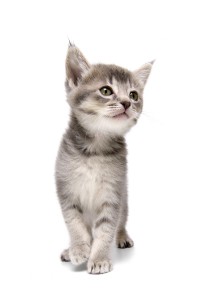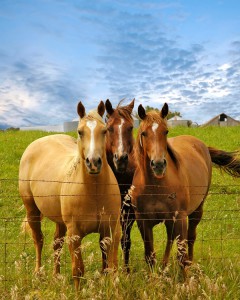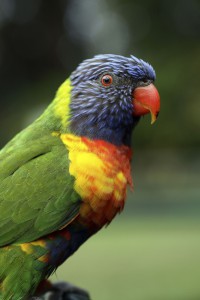DOG FACTS

• Dogs sweat from the pads of their paws
• Dog get cool by panting
• Dogs kick their back legs after going to the toilet because they have scent glands on their paws, they are trying to mark their territory
• Dogs have about 100 different facial expressions, most of them made with the ears
• Dogs have about 10 vocal sounds
• There are more than 200 different breeds of dogs
• Dogs curl up in a ball when they sleep due to an age-old instinct to keep themselves warm and protect their abdomen and vital organs from predators
• Dogs can see in the dark! This is because they have a very special membrane in their eye called ‘tapetum lucidum’
• Dogs do not see in Black and White like first thought; they can see blue, yellow, green and grey. However they are colour blind to red & green. The reds & green look like beige
• Dogs sense of smell is 100 million times better than humans
• Dog were one of the first animals domesticated by humans, more than 10,000 years ago
• Did you know that there is a rare dog breed originating from Inca tribe in Peru called ‘Xoloitzcuintle’? (Pronounced: So – low – EETS – kweenT – lee)
CAT FACTS
 • Cats do not have sweat glands at all
• Cats do not have sweat glands at all
• A cat cannot chew large chunks of food. This is because they cannot move their jaw sideways
• Cats have over 100 vocal sounds
• Each cat’s nose pad has a unique pattern, just like a human fingerprint
• Cats have five toes on each front paw, but only four toes on each back paw
• Cats’ have more than 230 bones (a human has only 206).
• A cats’ pelvis and shoulders are loosely attached to the spine, this makes them very flexible to fit through small spaces
• On average a cat spend 2/3 of every day sleeping. That means a 9 years old cat has been awake for only 3 years of its life
• Cats have better memories than dogs. A dog’s memory lasts no more than 5 minutes while a cat’s can last as long as 16 hours. That’s even better then monkeys and orang-utans!
• A cat’s brain is biologically more similar to a human brain than it is to a dog’s. Both humans and cats have identical regions in their brains that are responsible for emotions
HORSE FACTS
• A male horse is called a stallion
• A female horse is called a mare
• A young male horse is called a colt
• A young female horse is called a filly
• A baby horse is called a foal
• Horses can sleep both lying down and standing up
• Foals can run shortly after birth
• Domestic horses can live to around 25 years
• A 19th century horse named ‘Old Billy’ is said to have lived 62 years
• Horses have around 205 bones in their skeleton (almost the same as humans)
• Horses have been domesticated for over 5000 years
• Horses have bigger eyes than any other mammal that lives on land
• Did you know there is a rare breed of horse called ‘Akhal-Teke’ that has a shiny pearly coat that can been seen in the dark. (Pronounced : Ack – hull – tec – e)
BIRD FACTS
• There are around 10000 different species of birds worldwide
• The smallest bird egg belongs to the hummingbird and is the size of a pea. The largest bird egg, from which the ostrich hatches, is the size of a grapefruit
• Kiwis are endangered, flightless birds that live in New Zealand. They lay the largest eggs relative to their body size of any bird in the world
• Kiwi birds are blind, so they hunt by smell
• Scientists believe that birds evolved from theropod dinosaurs
• Birds have hollow bones which help them fly
• Some bird species are intelligent enough to create and use tools
• The chicken is the most common species of bird found in the world
• Hummingbirds can fly backwards
• A group of larks is called an exaltation, a group of chickens is called a peep, a group of geese is called a gaggle, a group of ravens is called a murder, and a group of owls is called a parliament
• Mockingbirds can imitate many sounds, from a squeaking door to a cat meowing
• Homing pigeons are bred to find their way home from long distances away and have been used for thousands of years to carry messages


